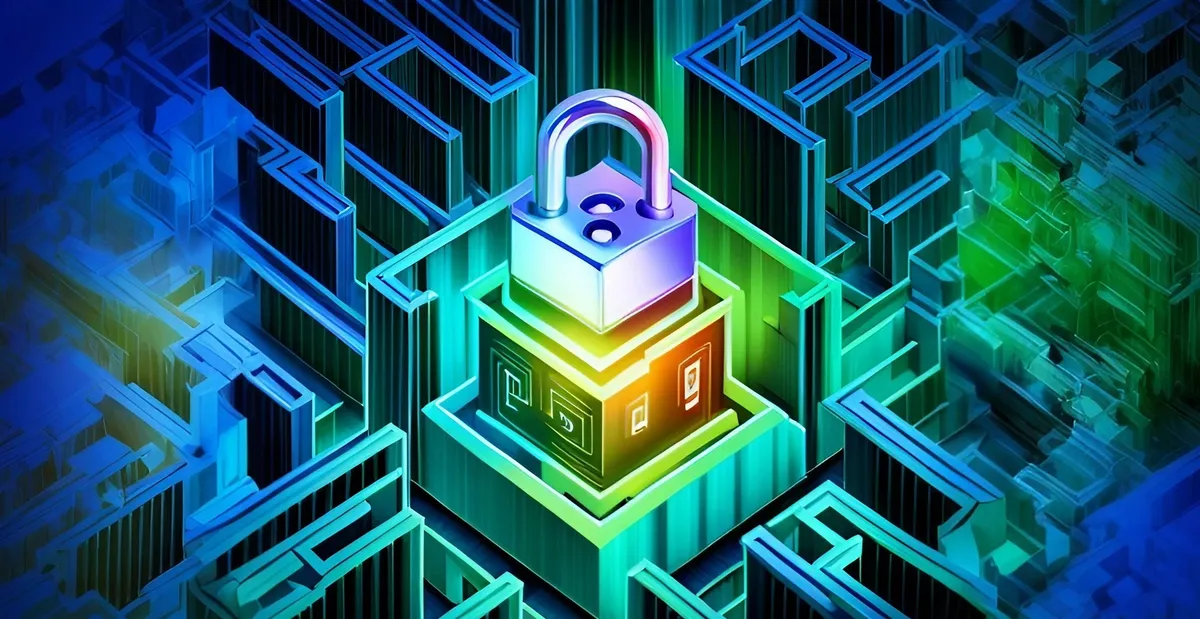Does ChatGPT Save Data? The Astonishing Facts Unveiled!
Does ChatGPT Save Data? Developed by OpenAI, this revolutionary artificial intelligence model has been causing quite a stir in the AI community.
- It leverages sophisticated machine learning techniques to generate text that’s eerily similar to human conversation, all based on the prompts it’s fed.
- This AI prodigy has found its way into a myriad of applications, from powering customer service chatbots to crafting engaging content, and even serving as an innovative tool for learning and education.
Quick Navigation: Does ChatGPT Save Data?
Part 1: Importance
1.1. Importance of Data Privacy and Security in AI Applications
In the era of big data, where vast amounts of information are being processed and analyzed by AI models, the importance of data privacy and security cannot be overstated. As AI models like ChatGPT interact with users, they handle sensitive user data. This raises concerns about how this data is used and protected. Therefore, understanding how ChatGPT handles data privacy and security is crucial for users and developers alike.
1.2 Purpose of the Article
The purpose of this article is to delve into the topic of data privacy and security in ChatGPT. We aim to provide a comprehensive understanding of how this AI model handles user data, debunk common misconceptions, and explore the implications for the future of AI and data privacy.
Part 2: Understanding ChatGPT
2.1 Detailed Explanation of How ChatGPT Works
ChatGPT is a generative AI model that uses machine learning techniques to generate text. It is trained on a vast amount of text data from the internet, but it does not know specifics about which documents were in its training set or any personal data unless explicitly provided during the conversation. It generates responses to user inputs by predicting the next word in a sentence, based on the words it has seen so far. This allows it to generate coherent and contextually relevant responses.
2.2 Various Applications of ChatGPT
ChatGPT has a wide range of applications. It has been used to create customer service chatbots, generate content for websites, and even as a tool for learning and education. Its ability to generate human-like text makes it a versatile tool that can be used in various domains where natural language processing is required.
We’ve compiled a list of top generative ai companies in 2023. Must read for our users!
2.3 The Concept of Data Usage in AI Models Like ChatGPT
AI models like ChatGPT use data in two main ways: for training and for generating responses. During training, the model learns patterns and structures in the data it is trained on. When generating responses, it uses these learned patterns to produce text that is contextually relevant to the user input. However, it’s important to note that ChatGPT does not store personal data from the conversations it has with users, ensuring user privacy.
Part 3: Data Privacy and Security in ChatGPT
3.1 OpenAI’s Stance on Data Privacy and Security
OpenAI, the organization behind ChatGPT, places a high priority on data privacy and security. Their privacy policy outlines the practices with respect to personal information they collect from or about users. They also have a data processing addendum to ensure that personal data is handled appropriately and securely.
3.2 How ChatGPT Handles User Data During Interactions
When interacting with users, ChatGPT does not store personal data from the conversations. It generates responses to user inputs by predicting the next word in a sentence, based on the words it has seen so far. However, it does not know specifics about which documents were in its training set or any personal data unless explicitly provided during the conversation. This ensures that user privacy is maintained during interactions with ChatGPT.
3.3 Measures Taken by OpenAI to Ensure Data Privacy and Security
OpenAI has implemented several measures to ensure data privacy and security. These include:
- Clear and transparent privacy policies and terms of use
- Ensuring that personal data is handled appropriately and securely
- Not storing personal data from user interactions with ChatGPT
- Regularly updating and improving their data privacy and security measures
Part 4: Misconceptions and Clarifications
4.1 Common Misconceptions About Data Storage in ChatGPT
There are several common misconceptions about data storage in ChatGPT. One of the most prevalent is the belief that ChatGPT stores personal data from user interactions. This is not the case. ChatGPT does not store personal data from the conversations it has with users.
4.2 Clarifications Provided by OpenAI and Other Reliable Sources
OpenAI and other reliable sources have provided clarifications to debunk these misconceptions. They have clearly stated that ChatGPT does not store personal data from user interactions. They have also provided detailed information about how ChatGPT handles data privacy and security in their terms of use and privacy policies.
4.3 Impact of These Misconceptions on User Trust and AI Adoption
These misconceptions can have a significant impact on user trust and AI adoption. Misunderstandings about data privacy and security can lead to users being hesitant to use AI models like ChatGPT. Therefore, it is crucial to provide accurate and clear information about how these models handle user data.
Part 5: Comparisons and Contrasts
5.1 Comparison of ChatGPT‘s Data Handling with Other AI Models
ChatGPT, developed by OpenAI, is a unique AI model in terms of data handling. Unlike many AI models, ChatGPT is designed to generate human-like text based on the input it receives, without storing personal data from user interactions. This is a significant departure from some AI models that may store user data for various purposes.
On the other hand, AI models like Google’s BERT or LaMDA, also handle data differently. BERT, for instance, is designed to understand the context of words in search queries, while LaMDA is designed to engage in more open-ended conversations.
5.2 Unique Aspects of ChatGPT in Terms of Data Privacy and Security
One of the unique aspects of ChatGPT in terms of data privacy and security is its commitment to not storing personal data from user interactions. This commitment is a part of OpenAI‘s broader approach to data privacy and security, which includes clear and transparent policies and regular updates to their data privacy and security measures.
5.3 Lessons That Can Be Learned from These Comparisons
From these comparisons, we can learn several important lessons:
- The importance of data privacy and security in AI models
- The potential benefits of not storing personal data from user interactions
- The need for clear and transparent policies regarding data handling
These lessons can inform the development of future AI models and help users make informed decisions about which AI models to use.
You may also want to know how many questions can you ask ChatGPT in an hour.
Part 6: Conclusion and Future Implications
6.1 Recap of Key Points Discussed in the Article
This article has provided a comprehensive understanding of how ChatGPT handles user data, debunked common misconceptions, and explored the implications for the future of AI and data privacy. We’ve discussed how ChatGPT works, how it handles user data, and how it compares to other AI models.
6.2 The Future of Data Privacy and Security in AI, with a Focus on Models Like ChatGPT
As AI continues to evolve, data privacy and security will remain critical issues. Models like ChatGPT provide a blueprint for how to handle user data in a way that respects privacy and security. As we move forward, it will be important for AI developers to learn from these models and continue to prioritize data privacy and security.
6.3 Final Thoughts and Implications for Users and AI Developers
For users, it’s important to understand how AI models like ChatGPT handle your data. This knowledge can help you make informed decisions about which AI models to use.
For AI developers, the lessons from ChatGPT highlight the importance of prioritizing data privacy and security in your models. By doing so, you can build trust with users and pave the way for the wider adoption of AI.
FAQs Section
Does ChatGPT store my conversations?
No, ChatGPT does not store personal data from user interactions.
How safe is our data using ChatGPT?
ChatGPT is generally considered safe to use. OpenAI has implemented several measures to ensure the privacy and confidentiality of user data. However, as with any platform, it’s always advisable to refrain from sharing sensitive information.
Does ChatGPT provide authentic and accurate data/information?
While ChatGPT is a powerful tool capable of generating human-like text, it’s important to note that its responses are based on patterns and information learned during training. It does not have access to real-time data or the ability to validate the accuracy of the information it provides. Therefore, while it can provide a broad understanding of a subject, it’s always wise to double-check the facts from trusted sources.
Where does ChatGPT get data from?
ChatGPT is trained on a diverse range of internet text. However, it doesn’t know specifics about which documents were in its training set or have the ability to access any specific document or source of data.
What is ChatGPT? Is my data safe on this platform?
ChatGPT is an advanced language model developed by OpenAI. It’s designed to produce text that closely resembles human conversation based on the prompts it receives. When it comes to data safety, ChatGPT is generally regarded as a secure platform. OpenAI has put in place a number of safeguards to protect the privacy and confidentiality of user data. However, as with any platform, it’s always advisable to refrain from sharing sensitive information.







